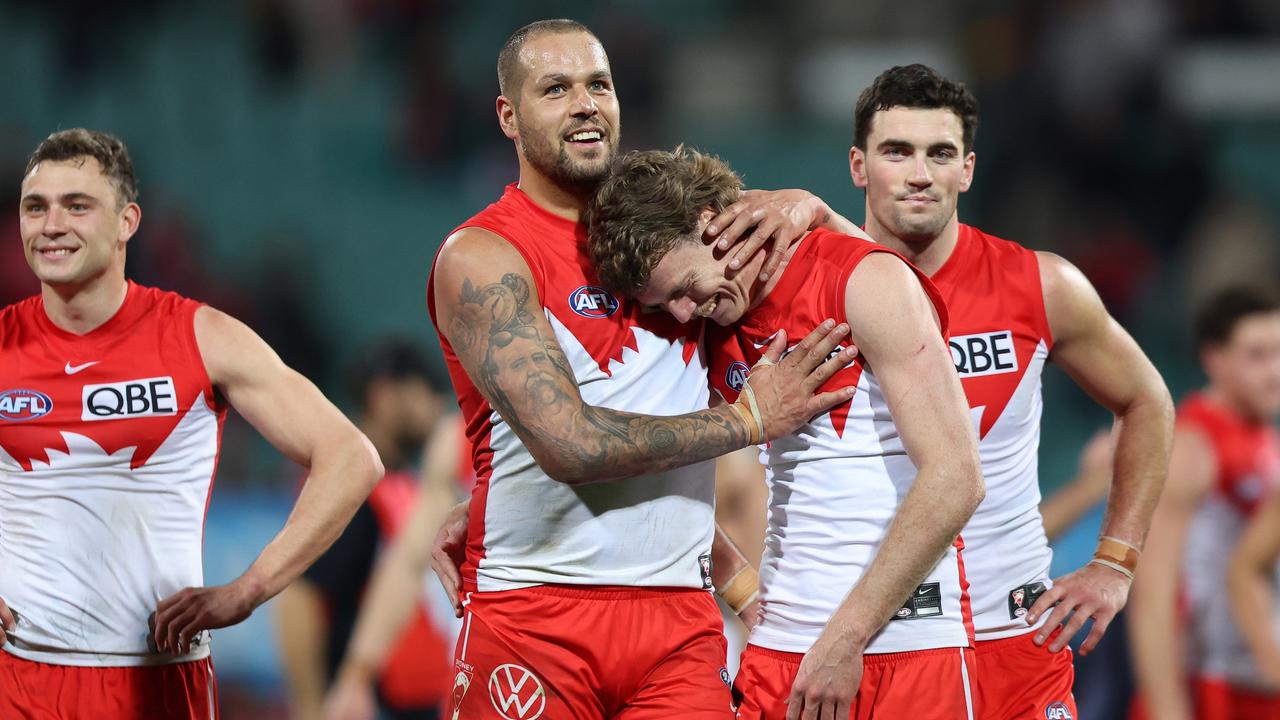Physical Address
Suite 5, 181 High Street,
Willoughby North NSW 2068
Physical Address
Suite 5, 181 High Street,
Willoughby North NSW 2068

Rowell expected to sign on with Suns | 01:01
The growing trend of long-term AFL contracts, some running for a decade, saw the league implement a new rule last year trying to ensure mistakes aren’t made.
Watch every match of the 2025 AAMI Community Series Live & ad-break free during play, exclusive to FOX FOOTY, plus match simulations and the Indigenous All-Stars game beginning February 15, available on Kayo Sports. New to Kayo? Get your first month for just $1. Limited time offer.
The Age’s Jake Niall reported ‘the Buddy Franklin rule’, which he named after the Sydney and Hawthorn great who signed a nine-year, $10 million deal back in 2013, was put in place before the 2024 season.
It forces club boards and CEOs to sign off on contracts lasting six years or longer, specifically making club bosses accept “full financial responsibility for meeting all current and future contract obligations”, “irrespective of any personnel changes in the club management or governance structure”.
The rule also states “the AFL may choose, at its sole discretion, to impose this requirement of any player contract it deems high-risk, for any reason” but it is unclear how this would be triggered.
But it seems this rule is not having any real effect with the long-term contract trend only growing across the past 12 months.
At least 27 players are believed to be contracted until the 2030s with Hayden Young locked into Fremantle until 2033, and Mac Andrew having a trigger that would keep him at Gold Coast until 2034.
Fremantle is the most prolific user of long-term deals with Young plus three more players contracted until 2030 – Brennan Cox, Josh Treacy and Sean Darcy.
Collingwood and Carlton have three apiece, plus big names Charlie Curnow and Nick Daicos respectively are signed until the end of 2029.
West Coast is the only club without a player contracted into the next decade while Geelong only added one when trading for Bailey Smith.
There are several factors behind these mega-deals, including:
– The cost certainty of having a player locked in for so long, enabling greater forward planning;
– The upside of a player outperforming the deal if they continue to improve, though only if the contract does not have escalators matching the rise salary cap;
– The looming arrival of the Tasmania Devils team in 2028 and wanting to ensure players aren’t poached;
– The ability to manipulate salaries within the long contracts, so that if a team has limited cap space in one year the player can be paid less, and vice versa.
Long-term contracts are also common in other sports. In baseball, the New York Mets signed Juan Soto to a 15-year, $1.2 billion deal this past December while in the NFL, Patrick Mahomes is roughly midway through a 10-year deal with Kansas City.
His team has restructured the deal several times to create extra space under the NFL’s complicated salary cap rules.
The ‘Buddy rule’ isn’t the only tweak made by the AFL to long-term deals recently. In mid-2024, it was revealed clubs would get scaling salary cap relief for players forced to retire through concussion for up to three years – but no longer.
LONGEST AFL CONTRACTS
Until 2034* – Mac Andrew (Gold Coast) [deal until 2030 with a four-year trigger]
Until 2033 – Hayden Young (Fremantle)
Until 2032 – Sam Taylor (GWS), Connor Rozee (Port Adelaide), Noah Balta (Richmond), Max King (St Kilda), Aaron Naughton (Western Bulldogs)
Until 2031 – Darcy Fogarty (Adelaide), Cam Rayner (Brisbane), Hugh McCluggage (Brisbane), Jacob Weitering (Carlton), Brent Daniels (GWS), Nick Blakey (Sydney)
Until 2030 – 15 players
